Susan Stamberg, Ornette Coleman among those receiving U-M honorary degrees with Obama
Sharing a stage with a sitting president might be the crowning glory in some people’s lives. But for Jean Campbell, Ornette Coleman, Stanford Ovshinsky, Susan Stamberg and Charles Vest,, it’s just one more in a long list of achievements.
All five will receive honorary degrees, along with President Barack Obama, at Saturday's University of Michigan spring commencement.
“It’s an exciting slate of recipients,” said Lisa Connolly, project manager for the U-M President’s Office and staff member of the Honorary Degree Committee.
The university has been bestowing these honors for more than a century. In that time, the more than 1,000 distinguished individuals who have received honorary degrees include Detroit mayors Dennis Archer and Dave Bing, Michigan governors John Engler and Jennifer Granholm, both George H.W. and Barbara Bush, Secretary of State Hillary Clinton, Supreme Court justices Sandra Day O’Connor and Ruth Ginsburg, filmmaker Ken Burns, Detroit Tigers baseball announcer Ernie Harwell, writer and Holocaust survivor Elie Wiesel, civil rights leader Rosa Parks and race car driver Roger Penske. Saturday, a journalist, an inventor, a jazz musician, an engineer and a women's education advocate will join their ranks.
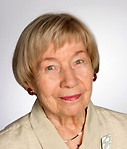
Jean Campbell
During her two-decade-long tenure, the CEW pioneered an evening study program, funded scholarships, launched an administrative intern program, collaborated with other universities and served as the incubator for the Women in Science and Engineering program (now an independent entity). Although Campbell retired in 1985, the Jean Campbell Research Fund continues to support visiting scholars and faculty research.
Campbell got her own bachelor’s degree in 1938 and a master’s in 1939, both from Northwestern University. The Michigan Women’s Hall of Fame inducted Campbell in 1993, saying she “has always been in the forefront in confronting the issues and imbalances affecting equity for women as participants in higher education and in their careers.”
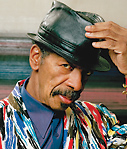
Ornette Coleman
At the age of 14, Coleman taught himself to play the saxophone his mother saved up to buy him with her seamstress’ wages and began playing with local bands in Fort Worth, Texas. By 1960, he’d landed in Los Angeles and unleashed “Free Jazz: A Collective Improvisation” on the American scene, which started out as merely an album title and eventually grew into an entirely new “free jazz” genre. Twenty albums later, he was inducted into the DownBeat Jazz Hall of Fame in 1969. His 2006 album “Sound Grammar” won a Pulitzer Prize the following year.
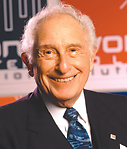
Stanford Ovshinsky
Ovshinsky holds hundreds of U.S. patents and his inventions underpin many of the cornerstones of 21st century life: photovoltaic cells to capture sunlight, solid hydrogen to power fuel cells, reversible optical memory to rewrite CDs and nickel metal-hydride batteries for electric cars. Many of these were concepts scientists thought impossible before Ovshinky, but as he told PBS’s “Scientific American Frontier,” “It's very difficult for somebody to say it ain't going to work when you're driving around in a car with it. … I know what I want, I know what I'm going to do, and I use the periodic chart of atoms as if it's an engineering diagram.”
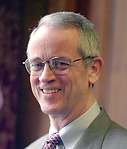
Charles Vest
He left in 1990 to be president of Massachusetts Institute of Technology, where he particularly championed increasing diversity among the students and making need-based financial aid more widely available. His administration oversaw the OpenCourseWare initiative, piloted in 2002 as a way to make the entire MIT curriculum available for free online.
In 2006, George W. Bush awarded him the National Medal of Technology “for his visionary leadership in advancing America's technological workforce and capacity for innovation through revitalizing the national partnership among academia, government, and industry.”
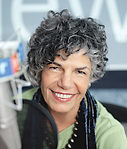
Susan Stamberg
Fourteen years later, Stamberg launched “Weekend Edition Sunday,” bringing the organization’s newsmagazines to a seventh day every week. She continues today as a special correspondent for NPR, a job that includes the popular recital of her mother-in-law’s interesting cranberry relish recipe sometime around Thanksgiving every year. She’s been inducted into both the Radio Hall of Fame and the Broadcasting Hall of Fame, and her two books present her life’s work in print form: “Every Night at Five: Susan Stamberg’s All Things Considered Book” and “Talk: NPR’s Susan Stamberg Considers All Things.”
Leah DuMouchel is a free-lance writer for AnnArbor.com.


Comments
Leah DuMouchel
Thu, Apr 29, 2010 : 1:31 p.m.
Spring commencement exercises, held after classes and finals wrap up in late April, fell on May 1 when I graduated in 1999 (we heard from Kofi Annan) and again in 2004 (David Davis, Jr. was the speaker).